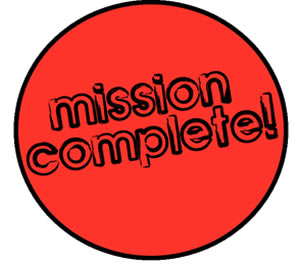Difference between Finish and Complete
Key difference: The words finish and complete means same, but differ slightly in their explanation contexts. The word ‘finish’ means anything which is just finish then that may relate to any part of an entire task or work. While, the word ‘complete’ means done with everything, which relates to the overall completion of any task or work.
The difference between the words, finish and complete is rarely found due to their similar meanings. But, though being similar in meanings these are different in their explanation and meanings. The below article gives a broader explanation of their meanings.
 The word finish refers to any thing or part that has finished, then that part may be a sub part or a small part from the entire thing or work. The word finish does not mean the completion of the entire thing; it refers to the accomplishment of that relevant thing or work.
The word finish refers to any thing or part that has finished, then that part may be a sub part or a small part from the entire thing or work. The word finish does not mean the completion of the entire thing; it refers to the accomplishment of that relevant thing or work.
For example:
To finish the homework
Here homework is a part of study or any content, so that part is accomplished not the entire subject or studies.
According to Dictionary.com:
Meaning of finish as a verb is:
- to bring (something) to an end or to completion; complete
- to come to the end of (a course, period of time, etc.)
- to use completely (often followed by up or off)
- to overcome completely; destroy or kill (often followed by off)
- to complete and perfect in detail; put the final touches on (sometimes followed by up)
- to put a finish on (wood, metal, etc.)
- to perfect (a person) in education, accomplishments, social graces, etc
- to come to an end
- to complete a course, project, etc. (sometimes followed by up)
As a noun it means:
- the end or conclusion; the final part or last stage.
- the end of a hunt, race, etc.
- a decisive ending
- the quality of being finished or completed with smoothness, elegance, etc.
- the manner in which an object is perfected or finished in its preparation, or an effect imparted in finishing
- the surface coating or texture of wood, metal, etc.

The word ‘complete’ means the entire completion of the task or work. This relates to the total finishing of any work, means nothing left behind. Because, if something would have left behind then it would have been incomplete’ or ‘not complete’, hence the entire work done of any relevant task relates to the completion of that work.
For example:
He completed 50 runs in 25 balls.
Here it means the player did complete the entire task of completing the runs within the given balls. His work or task has been completed, nothing is left behind.
According to Dictionary.com:
Meaning of complete, as adjective means:
- having all parts or elements; lacking nothing; whole; entire; full
- finished; ended; concluded
- having all the required or customary characteristics, skills, or the like; consummate; perfect in kind or quality
- thorough; entire; total; undivided, uncompromised, or unmodified
- having all modifying or complementary elements included
As a verb it means:
- to consummate.
- to bring to an end; finish
- to make perfect
- to make whole or entire
Comparison between Finish and Complete:
|
|
Finish |
Complete |
|
According to Merriam Webster: |
|
|
|
Origins of the word |
1300–50; Middle English , from ‘finisshen’ |
1325–75; Middle English ( Middle French) Latin, from ‘complētus’ |
|
Forms |
verb and noun |
adjective and verb |
|
Some Synonyms |
accomplishment, defeat, ending, finale, achievement, acquirement, acquisition, annihilation, attainment, cease, cessation, etc. |
entire, exhaustive, full outright, thorough, gross, integrated, replete, undocked, all, etc. |
|
Some Antonyms |
beginning, opening, start, birth, commencement, construction, creation, etc. |
incomplete, defective, deficient, imperfect, lacking, missing, etc. |
|
Examples |
|
|
Image Courtesy:conchelle.blogspot.com
Image Courtesy: kanar.org









Comments
Amit K
Thu, 01/18/2018 - 16:28
Add new comment